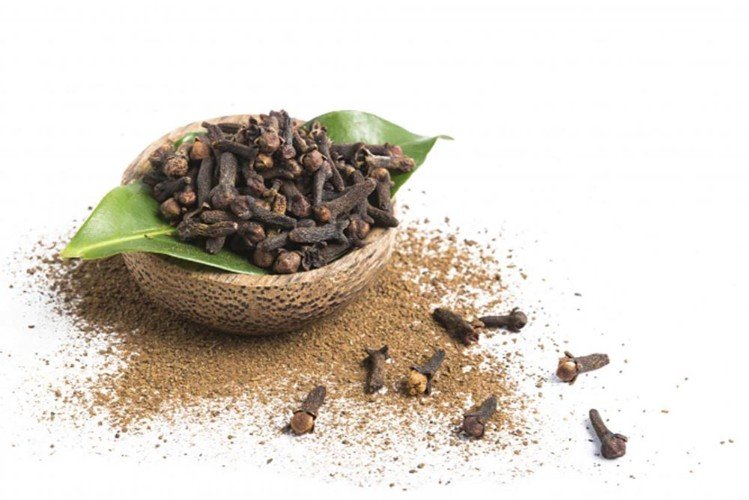
1. Contain important nutrients
Cloves contain fiber, vitamins, and minerals, so using whole or ground cloves to add flavor to your food can provide some important nutrients.
One teaspoon (2 grams) of ground cloves contains:
v Calories: 6
v Carbs: 1 gram
v Fiber: 1 gram
v Manganese: 55% of the Daily Value (DV)
v Vitamin K: 2% of the DV
Manganese is an essential mineral for maintaining brain function and building strong bones.
Apart from being a rich source of manganese, cloves are only used in small amounts and do not provide significant amounts of nutrients.
2. High in antioxidants
In addition to containing several important vitamins and minerals, cloves are rich in antioxidants.
Antioxidants are compounds that reduce oxidative stress, which can contribute to the development of chronic disease.
Cloves also contain a compound called eugenol, which has been shown to act as a natural antioxidant.
In fact, a test-tube study found that eugenol stopped oxidative damage caused by free radicals five times more effectively than vitamin E, another potent antioxidant.
Including cloves in your diet along with other antioxidant-rich foods can help improve your overall health.
3. May help protect against cancer
Some research suggests that the compounds found in cloves might help protect against cancer.
One test-tube study found that clove extract helped stop the growth of tumors and promoted cell death in cancer cells.
Another test-tube study observed similar results, showing that concentrated amounts of clove oil caused cell death in 80% of esophageal cancer cells.
The eugenol found in cloves has also been shown to have anticancer properties.
A test-tube study found that eugenol promoted cell death in cervical cancer cells .
However, keep in mind that these test-tube studies used very concentrated amounts of clove extract, clove oil, and eugenol.
Eugenol is toxic in high amounts and overdosing on clove oil may cause liver damage, especially in children. Further research is needed to determine how lower amounts may affect humans .
4. Can kill bacteria
Cloves have been shown to have antimicrobial properties, meaning they can help stop the growth of microorganisms like bacteria.
One test-tube study showed that clove essential oil killed three common types of bacteria, including E. coli, which is a strain of bacteria that can cause food poisoning.
What’s more, the antibacterial properties of cloves could even help promote oral health.
In one test-tube study, the compounds extracted from cloves were found to stop the growth of two types of bacteria that contribute to gum disease.
Another study in 40 people tested the effects of an herbal mouthwash consisting of tea tree oil, cloves, and basil.
After using the herbal mouthwash for 21 days, they showed improvements in gum health, as well as the amount of plaque and bacteria in the mouth.
In combination with regular brushing and proper oral hygiene, the antibacterial effects of cloves may benefit your oral health.
5. May improve liver health
Studies show that the beneficial compounds in cloves could help promote liver health.
The compound eugenol may be especially beneficial for the liver.
One animal study fed rats with fatty liver disease mixtures containing either clove oil or eugenol.
Both mixtures improved liver function, reduced inflammation, and decreased oxidative stress.
Another animal study showed that the eugenol found in cloves helped reverse signs of liver cirrhosis, or scarring of the liver.
Unfortunately, research on the liver-protecting effects of cloves and eugenol in humans is limited.
However, one small study found that taking eugenol supplements for 1 week decreased levels of glutathione-S-transferases (GSTs), a family of enzymes involved in detoxification that’s often a marker of liver disease .
 Weekly Bangla Mirror | Bangla Mirror, Bangladeshi news in UK, bangla mirror news
Weekly Bangla Mirror | Bangla Mirror, Bangladeshi news in UK, bangla mirror news







